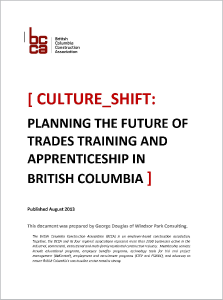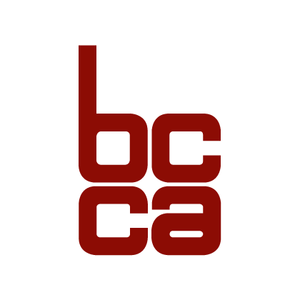
BC’s Indigenous Communities: Opportunities in the ICI Construction Sector
Overview prepared by the BC Construction Association for DMIIF, October 2017
Overview
As the largest employer in BC’s goods sector, employing nearly 250,000 British Columbians who collectively earn $13 billion in wages annually and contribute 8.6% of GDP, the construction sector offers powerful economic development opportunities in communities across the province.
In particular, skilled trade jobs mean rewarding, sustainable career opportunities, with an average salary of $58,500 per year. In a sector where two thirds of the workforce is currently aged 45 or over and retirements are contributing to a predicted gap of 15,000 workers, the life-changing opportunities available to British Columbians through the construction industry are very real.
The strong provincial economy and government’s commitment to infrastructure development combine to underscore the need for a transparent and inclusive strategy for attracting and retaining skilled workers and developing sustainable businesses from all of our communities, including those of BC’s indigenous peoples.
To ensure that construction employment and project opportunities are fairly available to all British Columbians, industry and government have the responsibility to collaborate. It is essential that we share a mutual understanding of how private and public programs, policies, and other actions may influence outcomes.
Action
There are three main levers influencing the construction industry that have the potential to improve our collective ability to attract and retain an indigenous construction workforce while upholding the integrity of public sector procurement processes and the highest standards of project outcomes:
1) Community Engagement
The Canadian Construction Association partnered with Indigenous Works (formerly the Aboriginal Human Resource Council), the BCCA, and other provincial construction associations to publish a guide to assist the construction industry engage more effectively with indigenous companies and communities in Canada. The guide is available to all construction employers and can be viewed here.
At BCCA, the majority of community engagement with indigenous populations occurs in these settings:
- between the Skilled Trades Employment Program (STEP) and indigenous job seekers and employers;
- between the LNG Connect and TransCanada Coastal Gas Link programs, indigenous job seekers and employers;
- when private owners, general and trade contractors seek assistance from BCCA, its Regional Construction Associations, and/or its programs in meeting contract requirements or bid stipulations that include set-asides for Indigenous populations.
BCCA works diligently to support the efforts of both the private and public sector in engaging with indigenous communities to source local contractors and employees for construction projects, operating as a proudly non-partisan organization working for the betterment of our communities. In general, engagement occurs on a project-by-project basis.
2) Skilled Workforce
Development Currently, we estimate approximately 5% (10,500) of BC’s construction workforce self-identifies as indigenous. Given that 4.2% of BC’s population is indigenous, this is arguably a reasonable reflection of the population as a whole. (Currently, it is estimated that between 4% and 7% of BC’s construction workforce is female.) However, accurate demographic statistics are difficult to obtain and can fluctuate significantly based on multiple factors including the seasonality and project-based hiring patterns of the construction industry.
The table below is provided by the Industry Training Authority (ITA):
(self-identified as Indigenous, active apprenticeships, as of March each year)
as % of total apprenticeships
Note that the 2,279 Indigenous apprentices enrolled as of March 2017 are currently participating in 76 different trades training programs.
There are many valuable trades training and workforce development programs operating in BC to assist underrepresented populations in getting the training and job opportunities they need to succeed. The flagship construction program in BC is the Skilled Trades Employment Program (STEP), managed by BCCA and funded by the province since 2006. To date STEP has placed over 10,000 British Columbians on a path to a career in construction.
STEP is different from other job placement programs because it exclusively concerned with construction jobs from a “demand driven” perspective, which means that STEP kicks into gear only when a construction employer has a job to fill. STEP does not provide training but does purchase training from established providers for participants, when that training is required for a job placement. Ministry of Advanced Education and Skilled Straining eligibility requirements ensure that the majority (at least 75%) of STEP job placements are indigenous, women, youth, immigrants, or a person with a disability. STEP works with First Nations and community service providers to promote its services, making presentations to Friendship Centres, Band Offices and often working closely with job coaches. STEP employs Indigenous/Metis staff who have excellent connections in their communities.
There are many organizations, some with alternative support funding options, offering specific assistance to indigenous people. Therefore STEP doesn’t generally tend to see high participant numbers in this target group except in the North, and even those numbers have declined due to a variety of factors including the wider number and type of supports available. Also, Indigenous applicants can present with more barriers to employment and often require further education training, mentoring, employment coaching and life skills training.
The most recent data suggests that Indigenous people comprise about 24% of STEP placements outcomes.
To date, we estimate the positive financial impact of the STEP program in BC to be substantial: please refer to the overview on the following page for a detailed overview.
3) Aboriginal Business Enhancement Policy and Contract Stipulations (also known as “Set Asides”)
Most levels of government within Canada have an aspiration to improve economic development through their purchasing conduct. Often these goals include a focus on furthering the economic health of specific communities or demographics such as indigenous populations, youth, and women.
Accordingly, public owners often seek to adapt policy and processes to guarantee the participation of minority groups such as Indigenous suppliers. Recent examples in BC can be drawn from tenders for civil construction projects where preference is given to contractors who hire Aboriginal workers or who engage in Joint Ventures with Aboriginal companies.
Direction for Indigenous engagement from the courts and the inclusion of community impact assessments for projects has placed new emphasis on the demonstration of Aboriginal involvement. This policy results in a preference being introduced into the procurement process, contradicting industry policy that inclusion and diversity be embraced without compromise to fairness and transparency of process. This is essential to ensure the highest project standards.
The official BCCA policy for Minority Preferences And Set-aside Programs is:
The BC Construction Association strongly endorses the principle that neither the sex, race, religion, nor geographic domicile within the Province of the principal owners of a firm, its employees, or labour force, should be a consideration in the procurement of construction materials or services. Furthermore, the Association vigorously opposes any procurement practice or program, which seeks to confer exclusive bidding rights to firms based upon any of the foregoing characteristics.
The industry fully supports initiatives which encourage minority groups to participate in construction and construction employment and training programs. However, when construction procurement requirements in the public sector indicate preference for employment based on subjective criteria this does not reflect the fair, open, and transparent process which is the responsibility of government to all citizens.
The most productive and positive way for a public owner to encourage employment from minority groups is to continue to support industry-led employment and business development programs. These programs reach into BC’s communities to provide the training and supports that assist underrepresented British Columbians to find, qualify for, and succeed in construction careers with integrity of process and outcome.
For example, a requirement for project proponents to demonstrate participation in a program such as STEP as part of their business operations would be a productive stipulation to meet Aboriginal inclusion or enhancement objectives, fill the skilled trades gap, and build BC’s skilled workforce.


Apprentice Demand in the Top Ten Red Seal Trades
.png)
BCCA Annual Report 2018
An Introduction to Integrated Project Delivery
.png)
BCCA Annual Report 2017
BC’s Indigenous Communities: Opportunities in the ICI Construction Sector
What's Required to be a Construction Contractor in BC?
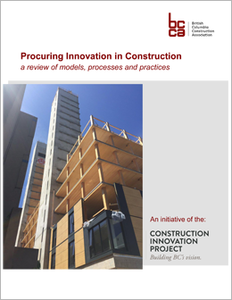
Procuring Innovation in Construction
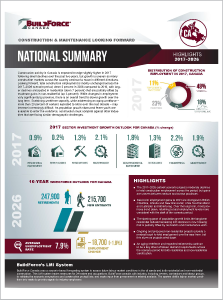
Construction & Maintenance Looking Forward 2017

Corporate Social Responsibility
.png)
Construction Innovation in BC

Green Building Rating Systems

Can Companies Really Do Well By Doing Good?
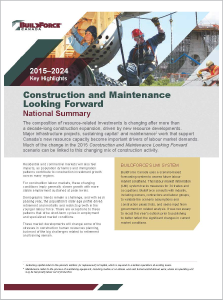
Construction & Maintenance Looking Forward 2015
.png)
The ITA Review
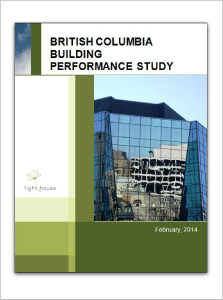
Light House Sustainable Building Centre
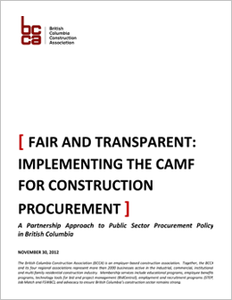
Fair and Transparent: Implementing the CAMF for Construction Procurement
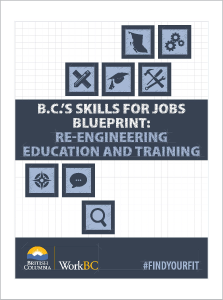
B.C.'s Skills for Jobs Blueprint
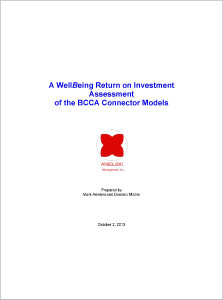
WellBeing Return on Investment Assessment of BCCA Connector Models

Signed, Sealed, Delivered: A legal analysis of the validity and enforcability of electronic bid bonds
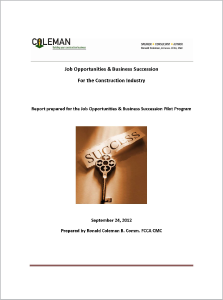
Job Opportunities & Business Succession
.png)
The Risks & Liabilities of Green Building
